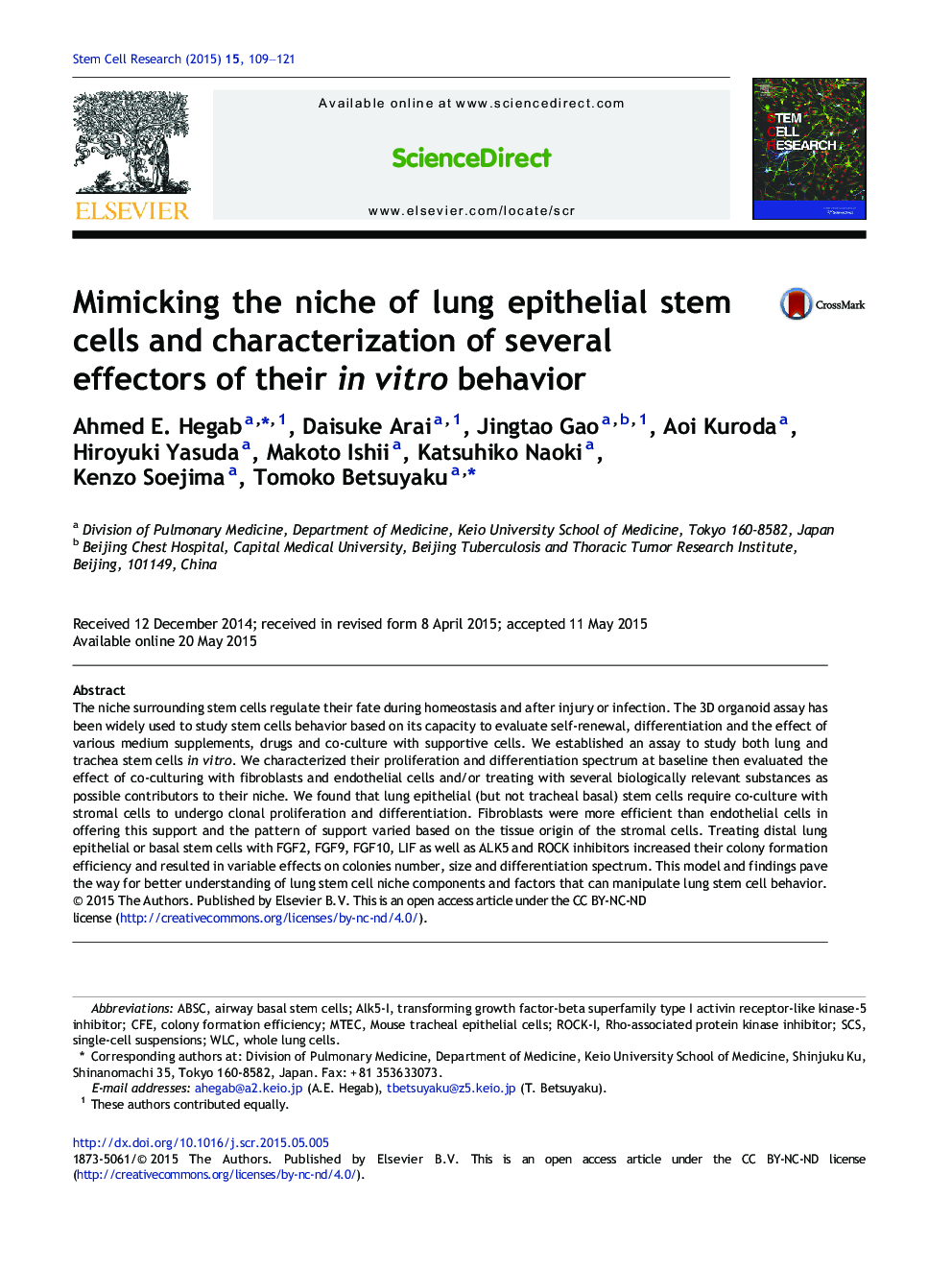| Article ID | Journal | Published Year | Pages | File Type |
|---|---|---|---|---|
| 2094073 | Stem Cell Research | 2015 | 13 Pages |
•A standardized assay to study lung and trachea stem cells in vitro is established.•Lung stem cells require close proximity to stromal cells.•Support offered by stromal cells varies according to their type and tissue of origin.•Several potential niche effectors variably influenced stem cells' behavior in vitro.
The niche surrounding stem cells regulate their fate during homeostasis and after injury or infection. The 3D organoid assay has been widely used to study stem cells behavior based on its capacity to evaluate self-renewal, differentiation and the effect of various medium supplements, drugs and co-culture with supportive cells. We established an assay to study both lung and trachea stem cells in vitro. We characterized their proliferation and differentiation spectrum at baseline then evaluated the effect of co-culturing with fibroblasts and endothelial cells and/or treating with several biologically relevant substances as possible contributors to their niche. We found that lung epithelial (but not tracheal basal) stem cells require co-culture with stromal cells to undergo clonal proliferation and differentiation. Fibroblasts were more efficient than endothelial cells in offering this support and the pattern of support varied based on the tissue origin of the stromal cells. Treating distal lung epithelial or basal stem cells with FGF2, FGF9, FGF10, LIF as well as ALK5 and ROCK inhibitors increased their colony formation efficiency and resulted in variable effects on colonies number, size and differentiation spectrum. This model and findings pave the way for better understanding of lung stem cell niche components and factors that can manipulate lung stem cell behavior.
Graphical abstractFigure optionsDownload full-size imageDownload high-quality image (260 K)Download as PowerPoint slide
